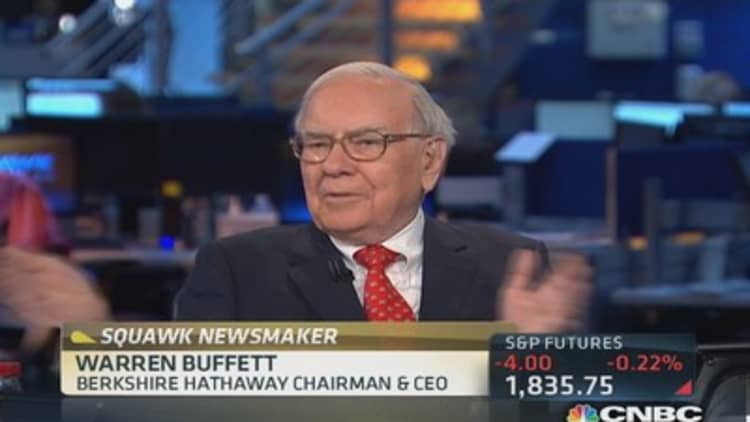Even as the buzz about bitcoin continues, regulators and financial advisors have begun cautioning consumers that the virtual currency may not have a place in their portfolios.
Both the Financial Industry Regulatory Authority and the Washington State Department of Financial Institutions issued investor alerts this month on the risks of bitcoin—chiefly, that the virtual currency is extremely volatile and that hackers may target both the platforms used for peer-to-peer sales of bitcoin and the virtual wallets owners use to store their investment.
According to the Washington state bulletin, "As Congress and state and federal regulatory bodies determine whether to or how best to oversee the virtual currency market, it would be wise for consumers to consider the risks of holding virtual currencies for investment or as a currency."
(Read more: CNBC explains bitcoin)
There's plenty about bitcoin to catch consumers' attention. Its wild price fluctuations sent it as high as $1,147 last year, although current prices have been closer to $600 per token. Several funds now invest in the virtual currency and more businesses, including Lord & Taylor, have started accepting it for purchases. But leading bitcoin exchange Mt.Gox filed for bankruptcy protection in February and said it may have lost some 850,000 bitcoins to hackers. At current market prices, that amounts to more than $520 million.
The alerts are meant to give some context to the news for casual investors who may not realize that buying or speculating on bitcoin falls on the riskier end of the investment spectrum, said Gerri Walsh, president of the FINRA Investor Education Foundation. "It's natural to want to get in on the ground floor of new opportunities," she said. "We all want to make a high return for little investment upfront."
"Bitcoin is like any other investment," said Bill Beatty, securities administrator for Washington State DFI. "You should understand what you're getting into. If you don't, or it or it doesn't make sense to you, then you probably shouldn't invest."
(Read more: Why Warren Buffett is wrong on bitcoin)

"Volatility, security—that's all true," said Jim Harper, global policy counsel for the Bitcoin Foundation. "The risks around bitcoin are real." But he said the alerts should be interpreted as a repetition of already known risks, rather than a growing chorus of concern. Security issues in particular are likely to abate over time with regulation, technology advancements and more players in the market, he said.
For most consumers, that's still plenty of reason to steer clear for now, said J.J. Burns, a certified financial planner based in Melville, N.Y. "This goes way outside the scope of being a prudent investment for just about everyone," said Burns.
At best, bitcoin—like any high-risk investment—should be a very small portion of your portfolio, and limited to money you wouldn't mind losing. "Be prepared to lose 100 percent of your investment—that's the kind of attitude you need to have," he said.
(Read more: Regulation is the one thing that might save bitcoin)
Regulators' warnings aren't only about bitcoin itself, but also scams that take advantage of the hype around it. "Bitcoin has a lot of the things we see that fraud artists latch onto: It's new, it's high tech, it's gotten a lot of press," said Beatty. Last year, the SEC charged a Texas man with running a Ponzi scheme involving bitcoin.
To that end, even consumers with some understanding of bitcoin should investigate companies and advisors involved with an investment, Walsh said. Check securities licenses and complaints with federal and state regulators.
—By CNBC's Kelli B. Grant. Follow her on Twitter @Kelligrant and on Google.


